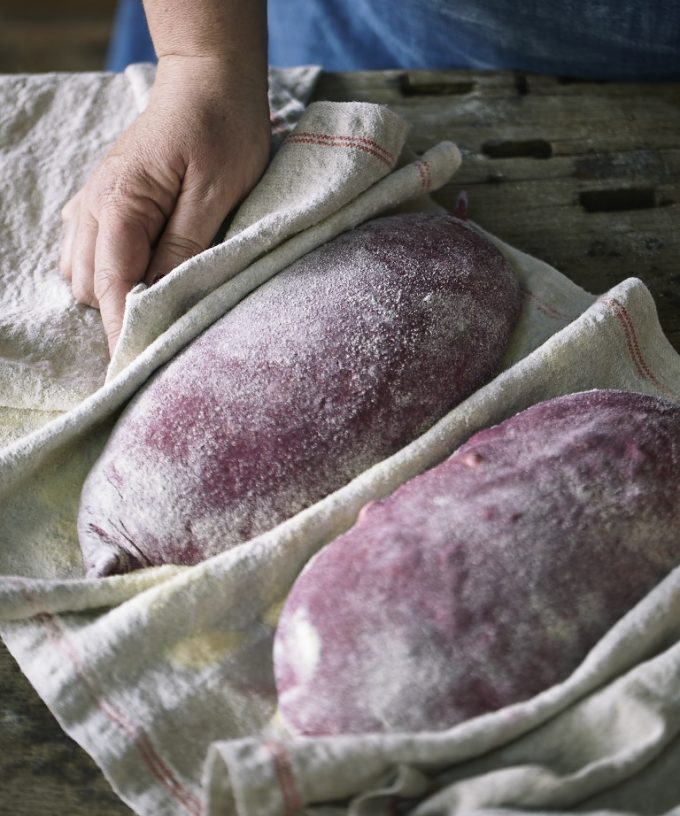Ascorbic acid, also known as vitamin C, is a compound frequently added to commercial bread dough as a flour treatment agent. In conventional baking, it strengthens gluten, increases dough tolerance, and improves loaf volume and crumb structure. However, its use in baking has sparked debate, especially in contrast to traditional sourdough methods.
What Is Ascorbic Acid?
Ascorbic acid is a synthetic form of vitamin C. In baking, it acts as a dough improver. It helps the dough rise faster and maintain a more uniform structure. This is useful in large-scale production, where time and consistency are key.
While it sounds healthy, the amount added to dough is very small. It doesn’t contribute much nutritionally. Its purpose is purely functional.
Why Traditional Sourdough Doesn’t Use It

At The Sourdough School, we avoid artificial dough conditioners like ascorbic acid. Instead, we rely on the natural fermentation process to build dough strength and flavour. Long fermentation enhances the bread’s digestibility and nutritional quality.
When you work with botanical blend flours, slow fermentation supports natural gluten development. This method removes the need for chemical additives altogether.
Healthier Bread Through Slow Fermentation
While ascorbic acid is often used to boost loaf height and crumb texture, these benefits can be achieved naturally. Our Proven Bread is a great example. It’s delivered in a convenient 24-slice tin, with 6g of fibre per slice. The subscription includes a 12-week lesson plan on how to eat bread in a way that supports your health.
This approach fits into our wider BALM framework (Baking as Lifestyle Medicine), which links fermented bread to gut and metabolic health.
Is Ascorbic Acid Regulated?
Yes, ascorbic acid is permitted in the UK and EU under the food additive code E300. It’s considered safe and is widely used in commercial baking. However, it’s not used in traditional sourdoughs, which are made using only flour, water, salt, and time.
Learn More
If you’re interested in learning how to bake without additives, our workshops, online memberships, and starter kits are great places to begin.
 Amylases: The Enzymes That Break Down Starch in Sourdough Bread
Amylases: The Enzymes That Break Down Starch in Sourdough Bread



